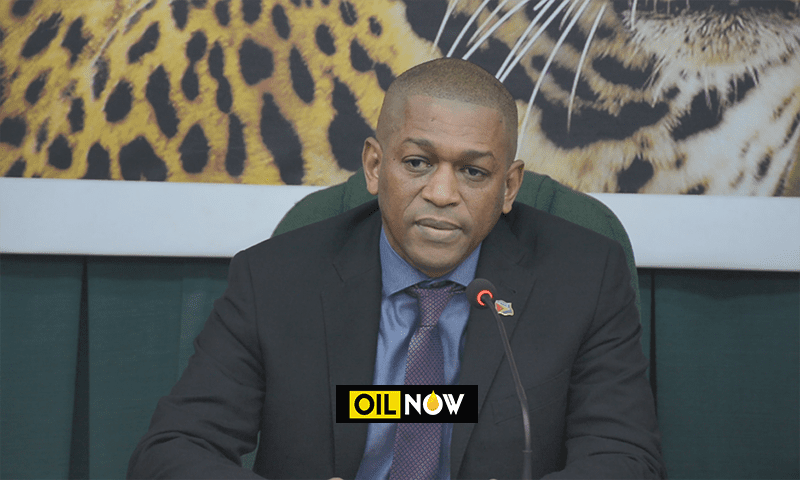Guyana’s Department of Energy (DE) on Friday disclosed a number of measures which it says is tied to the approval granted to ExxonMobil for the 220,000 bpd Liza Phase 2 Development project in the Stabroek Block offshore the South American country.
ExxonMobil affiliate Esso Exploration and Production Guyana Limited (EEPGL) is operator in the 6.6 million acres Stabroek Block, in partnership with Hess and CNOOC.
Speaking to reporters at the Ministry of the Presidency, Director of DE, Dr. Mark Bynoe said, “The approval is subject to a number of conditions and confirmatory studies,” for the giant Liza Phase 2 project targeting development of approximately 600 million barrels of oil.
These conditions are as follows:
- The establishment of a Regional Capping Stack or other solution to ensure that a Capping Stack can be deployed within 5 days of a well control event with loss of containment.
- Improving the targeted availability of the overall production system of the Liza Phase 2 FPSO to between 98% and 99%.
- Identifying potential cost savings synergies between Liza Phase 1 and Lisa Phase 2.
- The Stabroek partners entering into a Decommissioning Security Agreement.
- Having EEPGL conduct Annual Third-Party Auditing on their Drilling Operations that would be consistent with Good International Oil Field Practice (GIOFP) and its own Operations Integrity Management System (OIMS).
- The EEPGL shall follow the required practice in the US Gulf of Mexico in calculating “Worst Case Discharge” and to validate the assumptions and calculations by obtaining an independent assessment to develop an estimate of the flow that would result from an open hole well control event with loss of containment. This independent assessment will then be used as the basis for the Oil Spill Response Plan and oil spill modelling.
Insurance
“The Department has set the stage, as we have constantly been reiterating, by ruling out self-insurance and enforcing insurance compliant with Guyanese law. We have worked together with Governor of Bank of Guyana, the Guyana insurance community, inclusive of the Insurance Association of Guyana (IAG), and the Environmental Protection Agency (EPA) to create an environment where all Operators, including the Stabroek Operator, will source compliant insurance and demonstrate insurance quantum’s and terms through third party risk assessors,” Dr. Bynoe said.
The EPA had been in discussions with ExxonMobil Guyana regarding the company meeting local insurance requirements that would allow for coverage in the event of an oil spill or accident related to its operations offshore. The discussions, as well as the review of the field development plans by the Department of Energy, had delayed final approval for the Liza Phase 2 Development project.
“We were just ensuring that there was adequate coverage and the coverage had to have been at the highest level of what’s expected internationally,” Executive Director of the EPA, Dr. Vincent Adams, told OilNOW in a recent interview.
The Liza Phase 2 Project will include land-based support facilities such as pipe yards and bonds, drilling of subsea development wells and use of up to two drill ships. A floating production, storage and offloading vessel (FPSO) will be moored and connected to the wells for production and will have the capacity to produce approximately 190,000 – 220, 000 barrels of oil per day.



